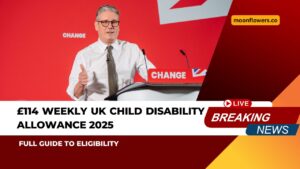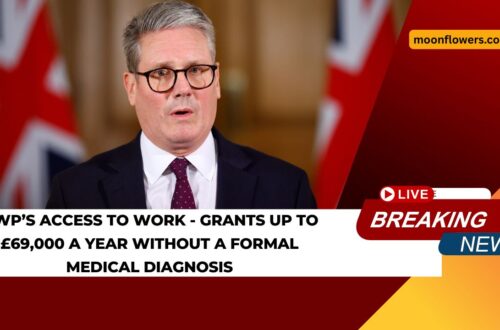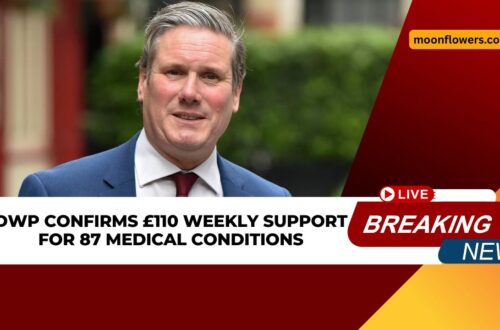As the festive season approaches, millions of UK benefit claimants are set to receive an extra boost in the form of a £10 Christmas Bonus.
This annual payment, issued by the Department for Work and Pensions (DWP), is designed to provide a little extra support during the holiday period. Although the amount may be modest, it has been a long-standing feature of the welfare system since 1972.
What Is the DWP Christmas Bonus?
The Christmas Bonus is a one-off tax-free payment of £10 automatically added to the accounts of eligible claimants. It usually appears during the first full week of December, but in some cases, it may not show up until January. On your bank statement, the payment will be listed as “DWP XB.”
Importantly, this bonus does not affect any other benefits you receive, meaning it comes as an additional payment without reducing existing entitlements.
Who Can Claim the £10 Christmas Bonus in 2025?
To qualify, you must be receiving at least one of the following DWP benefits during the qualifying week (typically the first full week of December):
- Adult Disability Payment
- Armed Forces Independence Payment
- Attendance Allowance
- Carer’s Allowance
- Child Disability Payment
- Constant Attendance Allowance (under Industrial Injuries or War Pensions schemes)
- Contribution-based Employment and Support Allowance (after 13 weeks)
- Disability Living Allowance (DLA)
- Incapacity Benefit (long-term rate)
- Industrial Death Benefit (widows or widowers)
- Mobility Supplement
- Pension Credit – Guarantee Element
- Personal Independence Payment (PIP)
- State Pension (including Graduated Retirement Benefit)
- Severe Disablement Allowance (transitionally protected)
- Unemployability Supplement or Allowance (under Industrial Injuries or War Pensions schemes)
- War Disablement Pension (at State Pension age)
- War Widow’s Pension
- Widowed Mother’s Allowance
- Widowed Parent’s Allowance
- Widow’s Pension
Residency Rules
You must also be living in the UK, Channel Islands, Isle of Man, or Gibraltar during the qualifying week to get the payment.
If you live abroad in certain countries within the European Economic Area (EEA) or Switzerland, you may still be eligible if you also meet age and benefit conditions.
Couples and Joint Claims
If you live with a spouse or civil partner, you may both receive the £10 bonus if you are both eligible. In cases where one partner does not receive a qualifying benefit, they could still qualify if:
- Both partners are over State Pension age by the end of the qualifying week.
- The partner who qualifies is entitled to an increase of a benefit for their spouse/civil partner, or the only benefit being claimed is Pension Credit.
Historical Background of the Christmas Bonus
The DWP Christmas Bonus was first introduced in 1972 to give pensioners and benefit claimants extra help during the holidays. While the payment was temporarily raised to £70 in 2008 during the financial crisis, it was quickly returned to £10 in 2009.
Since then, the amount has remained unchanged for over 50 years, prompting criticism from many families who believe £10 no longer provides meaningful support during the costly Christmas season.
The £10 Christmas Bonus from the DWP in 2025 will once again provide millions of eligible benefit claimants with a small holiday payment.
While it has remained unchanged since its introduction in 1972, the bonus continues to be a welcome—though modest—helping hand at a time of year when expenses often rise.
Claimants should ensure they meet the qualifying week criteria and check their bank statements for the “DWP XB” entry in December or January.
FAQs
When will the £10 DWP Christmas Bonus be paid in 2025?
Most recipients will receive the bonus in the first full week of December, but in some cases, it may arrive in January.
Do I need to apply for the Christmas Bonus?
No, the payment is made automatically to those who qualify, as long as they are receiving one of the eligible benefits.
Can I get the bonus if I live abroad?
Yes, you may still qualify if you live in the EEA, Switzerland, Gibraltar, or the Channel Islands, provided you meet other eligibility rules.









